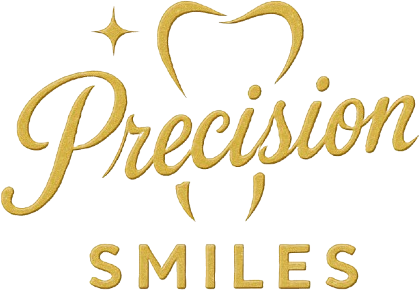4 Signs of Sleep Apnea and What Your Dentist Can Do

Getting a good night’s sleep is important for restoring the body’s function, but for people who have sleep apnea, this may not be possible. In this condition, you might stop breathing many times throughout the night — up to 30 times per hour. Snoring is one of the most obvious signs of sleep apnea, but there are other symptoms as well. If you are experiencing any of these symptoms, then it is important to seek treatment as soon as possible.
Signs of sleep apnea
One sign of sleep apnea is that a patient is a restless sleeper. People who have sleep apnea will often toss and turn during the night. People who find themselves thrashing, waking up under a pile of blankets or jerking about might have sleep apnea. Sleep apnea causes breathing to become disrupted, so individuals will be more likely to struggle while sleeping.
Another sign of sleep apnea is always being tired. Because sleep apnea causes individuals to wake up many times throughout the night, this can cause the quality of the sleep to deteriorate. People who have sleep apnea might fall asleep at different times during the day, such as when watching television. Because of this lack of sleep, people may also get sick more often. The immune system suffers when people do not get enough sleep.
Snoring is one of the most common signs of sleep apnea. When the upper airway is obstructed, it will vibrate when an individual takes a breath. While these two things often go together, snoring is not always a sign of sleep apnea. However, the louder that someone snores, the more likely that person is to have sleep apnea. If a partner notices that the snoring seems to stop and start, then it is very likely that the individual has sleep apnea. The pauses in breathing can happen up to hundreds of times in one night.
Dental problems such as worn teeth are often another sign of sleep apnea. Patients who have sleep apnea often grind the teeth during the night. This can cause the teeth to wear down. It can also cause increased cavities for patients.
Treatment for sleep apnea from a dentist
For individuals who have mild to moderate sleep apnea, treatment with an oral appliance may be an option. A dentist can fit a patient for this appliance. It works by preventing the lower jaw or tongue from falling back over the airway during sleep. This appliance can be used either by itself or with a continuous positive airway pressure (CPAP) machine.
Visit your dentist today
Sleep apnea is a serious condition that should not be ignored. Patients who have sleep apnea should speak with a dentist about getting the right treatment for this condition. Your dentist can create a customized appliance that can prevent your tongue or jaw from covering your airway. Contact a dentist today to begin getting treatment for your sleep apnea.
Request an appointment here: https://precisionsmiles.net or call Precision Smiles. at (201) 204-1355 for an appointment in our Hackensack office.
Check out what others are saying about our services on Yelp: Read our Yelp reviews.
Related Posts
Invisalign® can help you reach your smile goals. This teeth-straightening system can also relieve other problems from misalignment. Knowing if you are a good candidate can help you prepare for your treatment. Here are the details on determining if you are a good candidate for Invisalign.Clinical studies show that age is a significant factor in…
Teeth-straightening with Invisalign® aims to improve your bite and smile. Straight teeth are more stable and easier to maintain. You can also reap many benefits in your career and social life with straighter teeth. Understanding the process can prepare you well for your first day of treatment. Here are some Invisalign FAQs to ask your…
Invisalign® is one of the most revolutionary orthodontic treatments available. This option serves as a clear, discreet way to correct dental misalignments. Invisalign aligners are customized to fit the teeth and are a lot less intrusive compared to conventional braces. The subtlety and convenience of Invisalign have made it a popular choice, particularly for adults…
If you find yourself with TMJ, you need to head to a TMJ dentist immediately. TMJ, or temporomandibular joint dysfunction, is a serious condition of the jaw that can cause everything from pain and irritation to complete inability to move the jaw. This condition can grow more serious by the day, so if you are…

